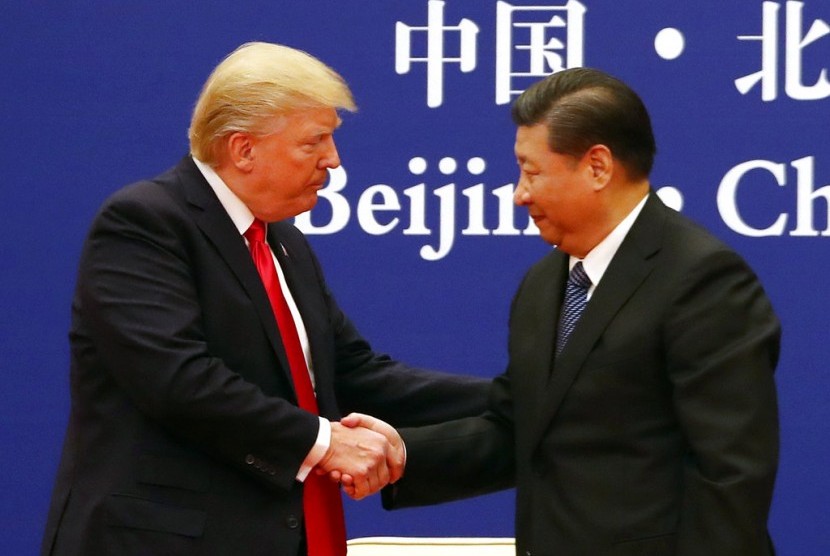REPUBLIKA.CO.ID, BEIJING -- Taiwan is the most important and sensitive issue in Sino-U.S. ties, Chinese President Xi Jinping told visiting U.S. President Donald Trump on Thursday, ahead of the one-year anniversary of Trump taking a precedent-breaking call from Taiwan's president.
China considers democratic Taiwan to be a wayward province and integral part of its territory, ineligible for state-to-state relations, and has never renounced the use of force to bring the island under its control.
The United States has no formal ties with Taiwan but is bound by law to help it defend itself and is the island's main source of arms.
Trump upset China last December by taking a telephone call from Taiwan President Tsai Ing-wen, shortly after he won election, the first call between U.S. and Taiwan leaders since President Jimmy Carter switched diplomatic recognition to China from Taiwan in 1979.
While there was no public mention of Taiwan in comments Xi and Trump made in front of reporters, the official Chinese foreign ministry statement about their talks did not mince its words.
"The Taiwan issue is the most important, most sensitive core issue in China-U.S. relations, and concerns the political basis of the China-U.S. relationship," the ministry paraphrased Xi as telling Trump.
China "hopes that the U.S. side continues to scrupulously abide by the 'one China' principle, and prevents disturbances to the broader picture of China-U.S. ties", Xi added.
Trump told Xi that the United States government upheld and stuck to the "one China" policy, China's official Xinhua news agency reported.
China suspects Tsai wants to push for the formal independence of Taiwan, a red line for Beijing. Tsai says she wants to maintain peace with China but will defend Taiwan's democracy and security.
China has pressured Taiwan since Tsai took office last year, suspending a regular dialogue mechanism and slowly peeling away its few remaining diplomatic allies.
China is deeply suspicious of U.S. intentions towards Taiwan, and was upset when the United States recently allowed Tsai to transit through Hawaii and Guam on her way to and from diplomatic allies of Taiwan's in the Pacific.
China has claimed sovereignty over Taiwan since 1949, when Mao Zedong's Communist forces won the Chinese civil war and Chiang Kai-shek's Nationalists fled to the island.



